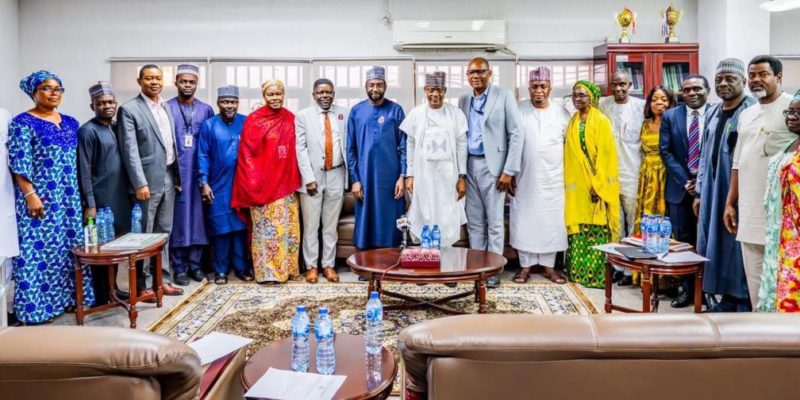The National Information Technology Development Agency (NITDA) and the National Universities Commission (NUC) have joined forces to integrate digital literacy as a mandatory general course in Nigerian universities. This landmark initiative aims to equip young Nigerians with the essential skills needed to thrive in the ever-evolving digital economy.
RELATED: ICT training to become mandatory for Nigerian university undergraduates, says NUC
The Director-General of NITDA, Kashifu Inuwa Abdullahi, announced the partnership during a courtesy visit to the NUC headquarters in Abuja. Building on the success of the Digital Literacy for All (DL4ALL) initiative piloted at Nasarawa State University, Keffi, the collaboration seeks to replicate the program across the nation’s higher education institutions.
“We aim to achieve 70% digital literacy by 2027 and 95% by 2030,” Abdullahi stated. “Embedding digital skills as a general course in universities provides a sustainable pathway to achieve this target, ensuring students graduate ready to contribute to Nigeria’s digital economy.”
Benefits of Digital Literacy for Nigerian Students
- Preparation for the Digital Economy:
With the integration of digital literacy, students will gain vital skills such as data analytics, coding, and artificial intelligence (AI), making them competitive in the global workforce. - Enhanced Employability and Entrepreneurship:
Digital skills align with industry demands, enabling graduates to become job creators rather than job seekers. The Nigerian Start-Up Act further supports this vision by fostering entrepreneurial ecosystems. - Bridging the Digital Divide:
Embedding digital literacy in universities addresses inequalities in access to technology, empowering students from all backgrounds to navigate the digital landscape effectively. - Strengthening Research Capabilities:
Digital platforms and tools enhance academic research, allowing students and faculty to explore cutting-edge innovations such as AI and big data for solving national challenges. - Global Competitiveness:
By aligning with global standards, Nigerian universities can produce graduates who are not only employable locally but also competitive on the international stage.
Challenges and Opportunities
Despite the promise of this initiative, challenges such as inadequate digital infrastructure and limited internet access persist in many Nigerian universities. However, the partnership between NITDA and NUC offers a roadmap to address these obstacles through collaborative efforts, capacity building, and leveraging private sector support.
“The rapidity of change in the digital revolution makes it imperative for Nigerian universities to adapt,” said NUC Executive Secretary Chris J. Maiyaki. He emphasized that digital literacy is no longer optional but essential for functioning in today’s world.
A Vision for the Future
With this initiative, NITDA and NUC aim to transform Nigeria into a global hub for digital talent. Through innovative policies, strategic partnerships, and a commitment to integrating technology in education, the agencies are charting a path for sustainable development in the country’s higher learning institutions.
“This is a collective mission,” Abdullahi noted. “Together, we can bridge the digital divide and prepare our citizens for a future where digital literacy is the foundation of success.”

































